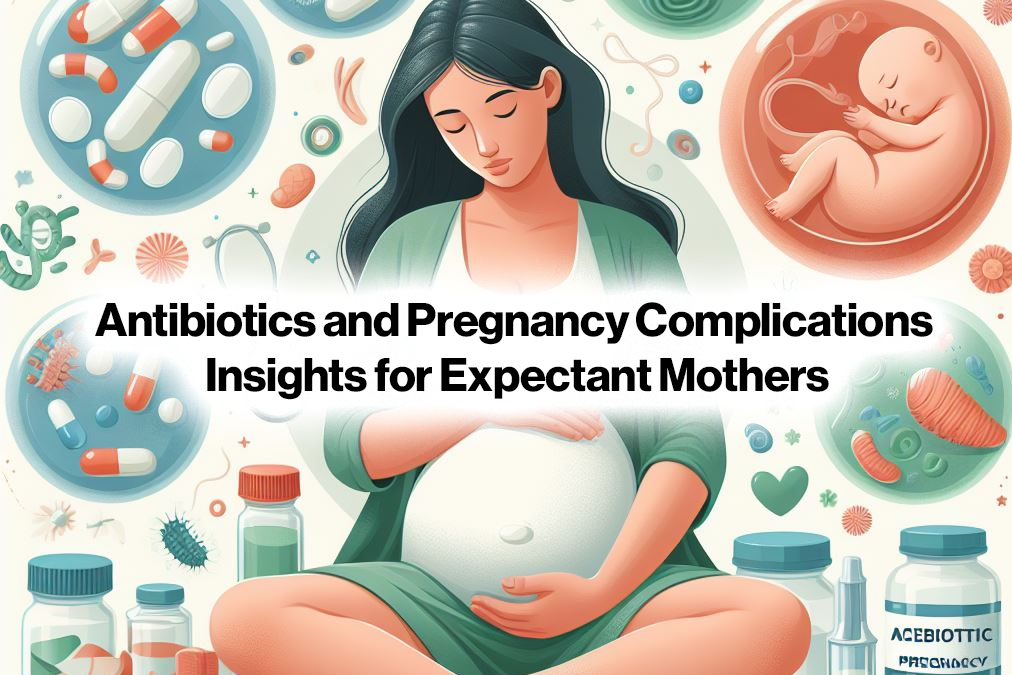In the realm of medical advancements and maternal care, pregnancy is a remarkable journey that requires meticulous attention and comprehensive understanding. One critical aspect that demands careful consideration is the use of antibiotics during pregnancy and the potential complications that might arise. We, as seasoned healthcare professionals, aim to provide you with detailed insights into the connection between antibiotics and pregnancy, shedding light on the latest research and expert opinions to help you make informed decisions for the well-being of both you and your unborn child.
Antibiotics and Their Role in Pregnancy
Antibiotics have revolutionized modern medicine by effectively combating bacterial infections. When it comes to pregnancy, the use of antibiotics becomes a delicate topic due to the intricate balance required to ensure both the mother’s and the fetus’s health. Pregnant individuals are not immune to bacterial infections, and in some cases, antibiotic treatment becomes necessary to prevent complications that could adversely affect the pregnancy.
Understanding the Concerns
1. Potential Risks and Benefits
The relationship between antibiotics and pregnancy is complex, with a myriad of factors influencing the decision-making process. Healthcare practitioners carefully evaluate the risks and benefits of antibiotic use during pregnancy. While antibiotics can effectively treat infections and prevent potential harm, there are also concerns about their impact on fetal development and the mother’s overall well-being.
2. Types of Antibiotics and Their Impact
Antibiotics come in various classes, each with distinct mechanisms of action. Some antibiotics are deemed safe during pregnancy, while others warrant more caution. For instance, penicillins and cephalosporins are generally considered safe, whereas tetracyclines and fluoroquinolones are associated with potential risks to fetal development. Healthcare providers meticulously select antibiotics that pose the least risk to both the mother and the developing fetus.
Navigating Antibiotics During Pregnancy
1. Consulting Healthcare Professionals
The cornerstone of a healthy pregnancy is open communication with healthcare providers. If you suspect an infection or are prescribed antibiotics, it’s imperative to consult your obstetrician or midwife promptly. Their expertise will guide you towards the most suitable antibiotic treatment, considering factors such as the type of infection, its severity, and the stage of your pregnancy.
2. Weighing the Benefits
Healthcare providers weigh the potential benefits of antibiotic treatment against the perceived risks. They consider factors such as the urgency of the infection, the potential consequences if left untreated, and the overall health of the mother. In cases where the benefits outweigh the potential risks, antibiotic treatment becomes a prudent choice.
Latest Research and Expert Opinions
1. Comprehensive Studies
Ongoing research plays a pivotal role in understanding the intricate relationship between antibiotics and pregnancy. Recent studies delve into the potential effects of antibiotics on fetal development and long-term outcomes for both the mother and child. These studies provide valuable insights that aid healthcare professionals in making informed decisions.
2. Expert Consensus
Leading medical experts emphasize the significance of tailored approaches when prescribing antibiotics during pregnancy. The consensus is that careful consideration of the antibiotic’s class, potential risks, and the mother’s unique medical history should guide the decision-making process. This approach ensures that the health of both the mother and the fetus remains the top priority.
Conclusion
In the grand tapestry of pregnancy, the use of antibiotics emerges as a vital thread that requires thoughtful handling. The complexities surrounding antibiotics and pregnancy necessitate collaboration between expectant mothers and their healthcare providers. By staying informed about the latest research, seeking expert opinions, and maintaining open communication, expectant mothers can navigate the realm of antibiotics during pregnancy with confidence.

Leave a Reply